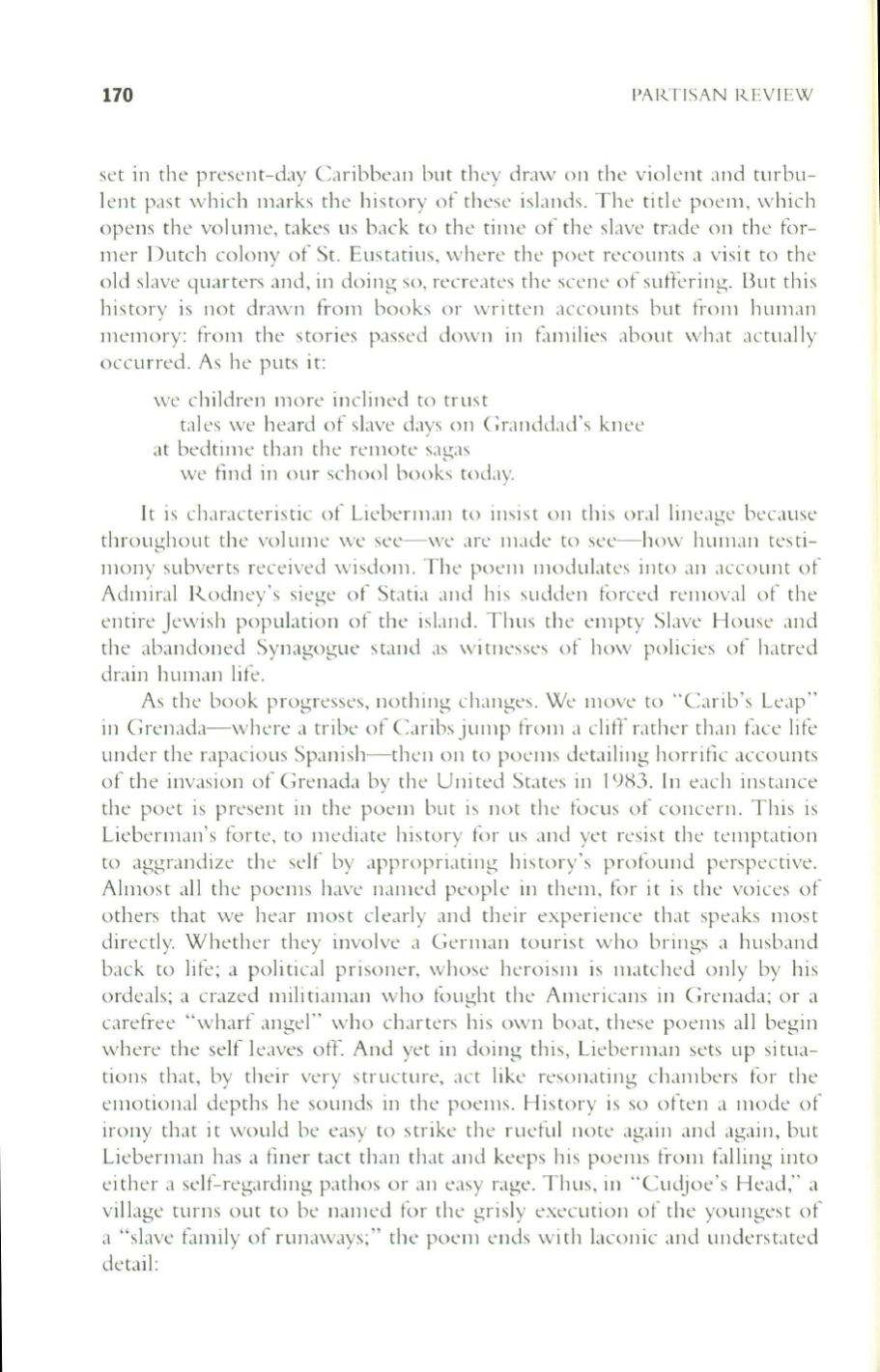
170
PAlnlSAN R.EVIEW
set in the present-day Caribbean but they draw on the violent and turbu–
lent past which llIarks the history of these islands. The title poem, which
opens the volume, takes us back to the tinle of the slave trade on the for–
Iller Dutch colony of St. Eustatius, where the poet recounts a visit to the
old slave quarters and, in doing so, recreates the scene of sutfering. Gut this
history is not drawn fi-olll books or wri tten accounts but tl-OI11 human
memory: fi-om the stories passed down in families about what actually
occurred. As he puts it:
we children more inclined to trust
tales we heard of slave days on Cr;lIlddad's knee
at bedtime than the remote sagas
we find in our school books today.
It is characteristic of Lieberman to insist on this oral lineage lx'cause
throughout the volume we see- we are made to sec- how human testi–
mony subverts received wisdom. The poem modulates into an account of
Admiral Rodney's siege of Statia and his sudden ti.Jrced removal of the
entire Jewish population of the island. Thus the empty Slave House and
the abandoned Synagogue stand as witnesses of how policies of hatred
drain human life.
As the book progresses, nothing changes. We move
to
"Carib's Leap"
in Grenada- where a tribe of Caribs jump tl-om a clifT rather than face life
under the rapacious Spanish- then on to poenls detailing horrific accounts
of the invasion of Grenada by the Un ited States in 1
<)~3.
In each ins rance
the poet is present in the poem but is not the focus of concern. This is
Lieberman's forte, to mediate history for us and yet resist the temptation
to aggrandize the self by appropriating history's profound perspective.
Almost all the poems have nallled people in them, for it is the voices of
others that we hear most clearly and their experience that speaks most
directly. Whether they involve a Gertllan tourist who brings a husband
back to life; a political prisoner, whose heroism is matched only by his
ordeals; a crazed militiaman who tought the Atllericlils in Crenada; or a
carefree "wharf angel" who charters his own boat, these poems all begin
where the self leaves off. And yet in doing this, LiebermJn sets up situa–
tions that, by their very structure, act like resonating chambers for the
emotional depths he sounds in the poems . History is so often a mode of
irony that it would be easy to strike the rueful note again and again, but
Lieberman has a finer tact than that and keeps his poems fi-om falling into
either a self-regarding pathos or an easy rage. Thus, in "Cudjoe's Head," a
village turns out to be named for the grisly execution of the youngest of
a "slave family of runaways;" the poem ends wi th lacon ic and unders tated
detail:


